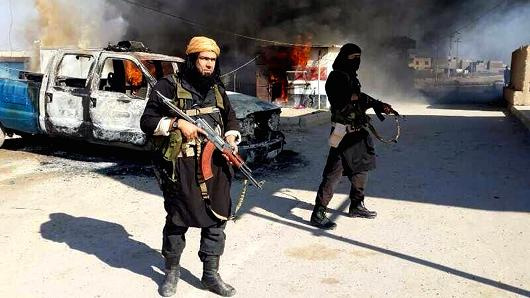Daesh’s Power Has Been Exaggerated

-The occupation of different regions in Iraq and Syria is the result of cooperation between several Ba’athist groups and the remnants of Saddam’s supporters and the Assad opposition and Daesh, by itself, does not have such a power.
-Daesh does not have the power to simultaneously attack different countries and occupy parts of their territories, but unfortunately the media’s coverage in this regard shows that this group has this power but in fact their capabilities have been exaggerated.
-Following the occupation of Iraq, al-Qaeda entered this country and was established under the leadership of al-Zarqawi. Later, this group was first known as the Islamic State of Iraq and during the past three years as the Islamic State of Iraq and the Levant. That is why Daesh is considered as a branch of al-Qaeda which pledged allegiance in the past with Bin Laden and then with Ayman al-Zawahiri.
-After some time, differences were formed between members of Daesh in Syria and other members because Ayman al-Zawahiri had told Abu Bakr Baghdadi in a letter to leave Syria and let the al-Nusra Front to control the regions of that country. But they did not accept these orders and ultimately separated from al-Qaeda and became their rival.
-What allowed Daesh to simultaneously control different provinces in Iraq was that eight or nine groups became united and ultimately succeeded in this task. Of course, the major forces which helped Daesh were the Iraqi Ba’athists who were divided into two groups. On the other hand, Saddam’ old military officers and the presidential guard supported them. Therefore, the majority of terrorist forces which launched these operations in Iraq were the Ba’athist political and military forces and supporters of Iraq’s Ba’ath Party.
-Based on the information, Daesh forces form more than one third of forces which captured parts of Iraq. This is while the majority of these forces was formed by the Baathists. But since the Baathists do not have good reputation in Iraq, they have been present in these operations under the name of Daesh. Thus, what happened in Iraq was not done by one group, rather all the opposition groups of the central government of this country united in this matter.
-This group is also active in the Sunni-inhabited areas of Iraq and when the residents of these regions were asked to raise De aesh flag they did so. This was not a military move to capture one province after another. Each group attacked government places in its own city and raised the Daesh flag but it was reported in the news that Daesh had advanced from city to city. But this was not a correct analysis, because, in fact, the silent Ba’athist establishments which were present in different Iraqi cities but were not active attacked Iraq’s government offices and captured some cities.
-Certainly, the differences between big countries will impact the power of these groups. The reason is that the polarization of the region between the resistance front and the front allied with the West has been turned into an element so that Saudi Arabia supports any group or country which is against Iran. The issue of Syria prepared this ground for them and, along the same line, Turkey, Qatar and Saudi Arabia supported the opponents of the Syrian government and ultimately these contradictions prepared the ground for the emergence of the attacks of a collection of terrorist groups including al-Qaeda.
-The first thing that must happen in Iraq is for the parliament session to be held so that the speaker of this legal body would be elected and members of the parliament could take an oath and for the prime minister to then be elected by the majority of the parliament members and then for the president to introduce him. But as long as the session of the Iraqi parliament is not held, the new Iraqi government cannot begin its work.
-Right now, this country is faced with another problem as well and that is that they must either accept the result of the election or individuals must come to power in Iraq who will not cause tension in the Iraqi society.

